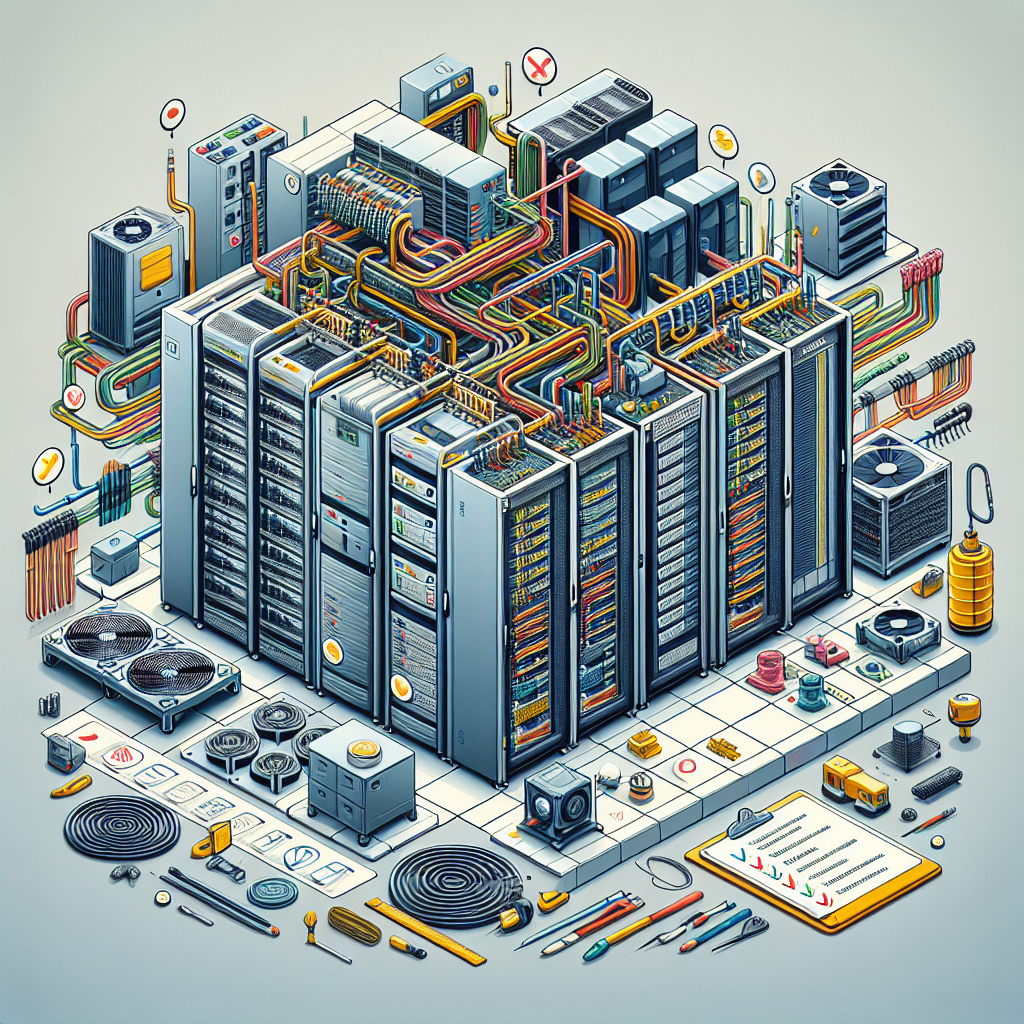Your cart is currently empty!
Key Components of a Comprehensive Data Center Maintenance Schedule

A data center is a critical component of any organization’s IT infrastructure. It houses the servers, storage, networking equipment, and other hardware that are essential for running business operations. To ensure that a data center operates efficiently and reliably, it is important to have a comprehensive maintenance schedule in place. This schedule should include regular inspections, preventive maintenance tasks, and procedures for handling unexpected issues.
There are several key components that should be included in a comprehensive data center maintenance schedule. These components are essential for ensuring the reliability and performance of the data center, as well as for minimizing downtime and reducing the risk of data loss.
1. Regular Inspections: Regular inspections are essential for identifying potential issues before they turn into major problems. Inspections should include checking for signs of wear and tear on equipment, monitoring temperature and humidity levels, and ensuring that all connections are secure. Inspections should be conducted on a regular basis, ideally weekly or monthly, depending on the size and complexity of the data center.
2. Preventive Maintenance Tasks: Preventive maintenance tasks are designed to keep equipment running smoothly and prevent breakdowns. These tasks may include cleaning air filters, checking for dust build-up, replacing worn-out components, and updating firmware or software. Preventive maintenance tasks should be scheduled on a regular basis and should be performed by trained technicians.
3. Emergency Response Plan: Despite regular maintenance, unexpected issues can still arise in a data center. It is important to have an emergency response plan in place to address these issues quickly and effectively. This plan should outline procedures for handling power outages, equipment failures, and other emergencies. It should also include contact information for key personnel and service providers who can assist in resolving issues.
4. Documentation: Documentation is essential for tracking maintenance tasks, equipment configurations, and changes to the data center environment. A comprehensive data center maintenance schedule should include detailed documentation of all inspections, maintenance tasks, and repairs. This documentation can help identify trends and patterns in equipment performance, as well as provide a record of actions taken to address issues.
5. Training and Certification: Maintenance tasks in a data center can be complex and require specialized knowledge and skills. It is important to ensure that technicians who perform maintenance tasks are properly trained and certified. Training should include instruction on best practices for maintaining data center equipment, as well as safety procedures and protocols for handling emergencies.
In conclusion, a comprehensive data center maintenance schedule is essential for ensuring the reliability and performance of a data center. By including regular inspections, preventive maintenance tasks, an emergency response plan, documentation, and training and certification for technicians, organizations can minimize downtime, reduce the risk of data loss, and ensure that their data center operates efficiently and reliably.

Leave a Reply